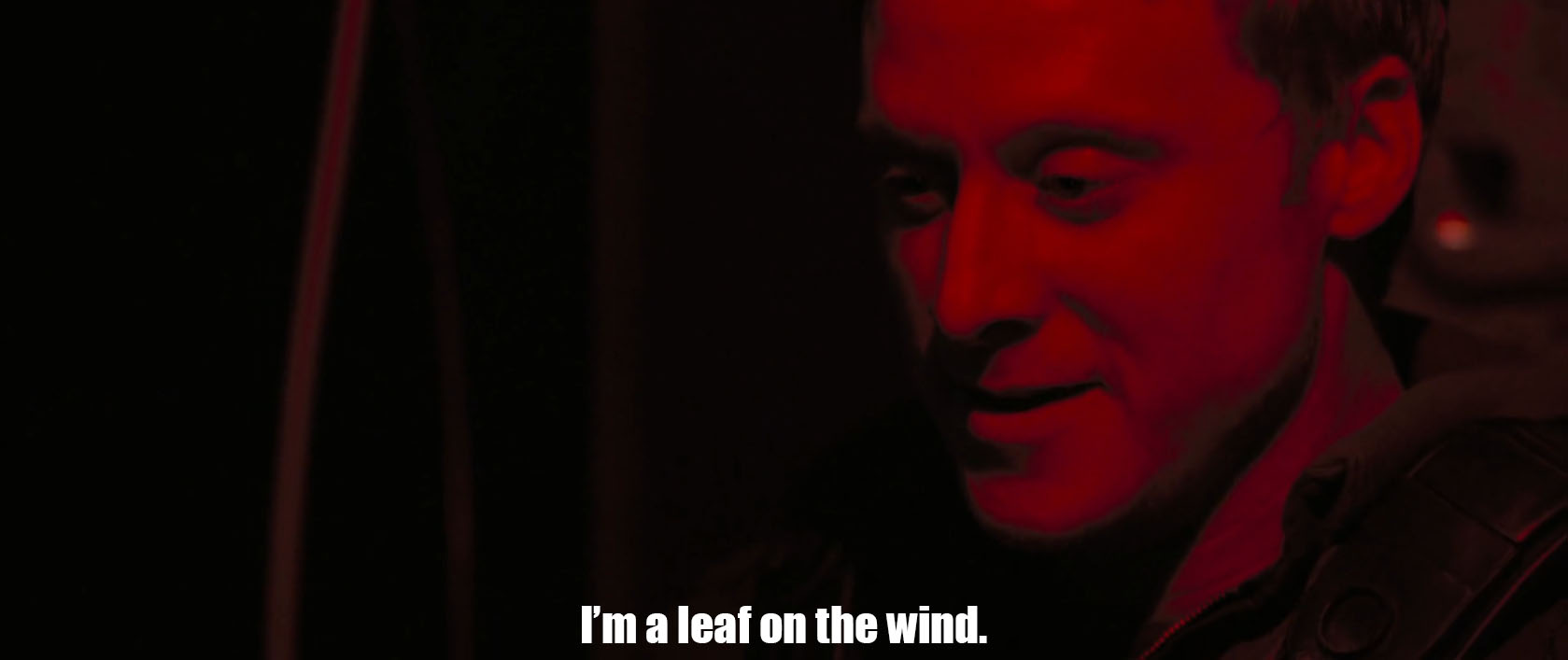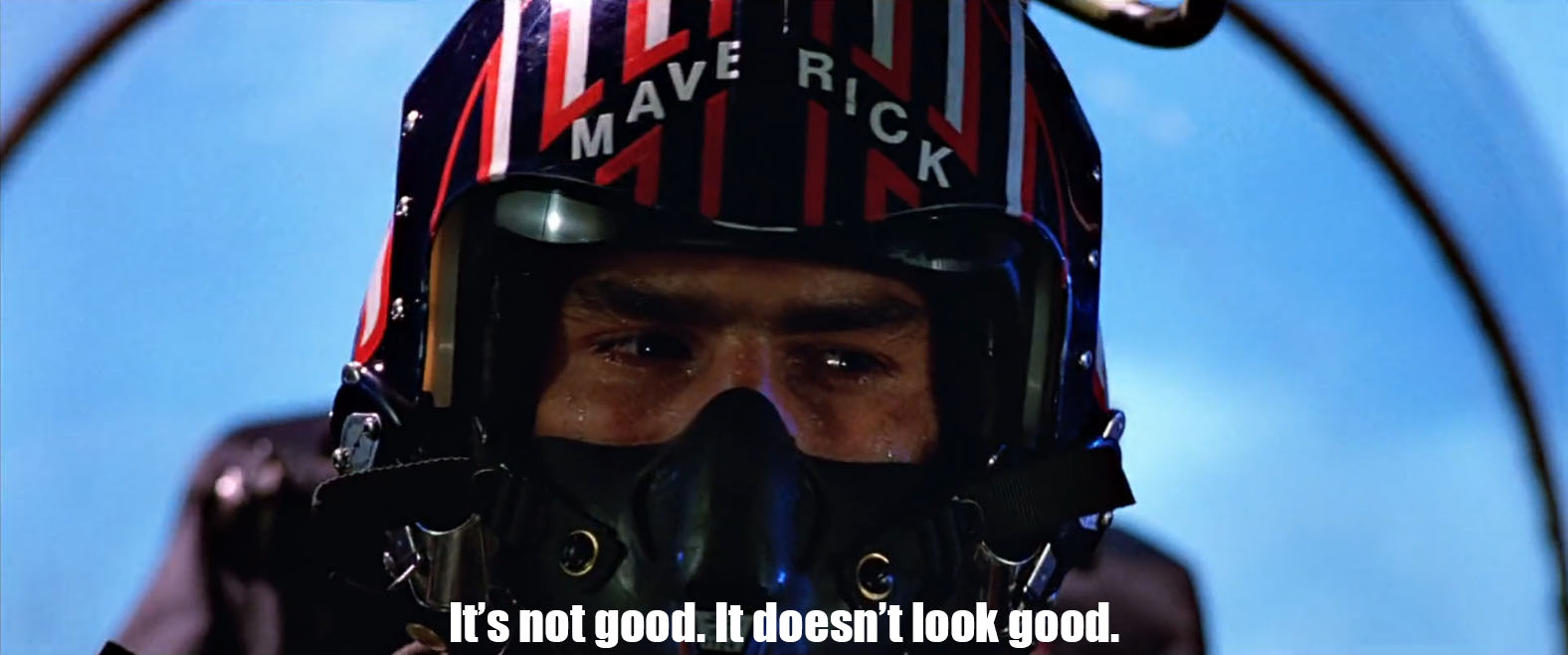And then it sublimated away into the black cloud of acid. Agnarr stumbled back. He tried to whirl to face the last remaining centurion. But the pain was too much. His legs failed him. He fell heavily to the floor and, as he lost consciousness, there was only one thought in his mind:
He had failed.
Twice during the course of Session 16 – and in relatively quick succession – the PCs ended up in very bad positions during a fight. Positions which, if things had gone a little differently, could have very easily ended up with all of them dead.
As a GM there’s going to come a moment when you’re looking at the evolving situation on the table and you’re looking at the stat blocks of the adversaries behind your screen and you’re going to think to yourself, “Oh shit. They might all die here.” Often the players themselves will realize their peril. The tension is going to ratchet up. The stakes riding on every action and every die roll are going to skyrocket. Everyone’s focus is going to tunnel in on survival. On how the day can be won.
And you, as the GM, are going to have to make a choice: Do you take the TPK gamble? Or do you pull back from the moment – fudge your dice rolls, pull your punches, nerf your damage rolls and health totals?
And speaking from years of experience, here’s what I have to say: Take the gamble.
Take the gamble every single time.
Because, in my experience, at least nineteen times out of twenty, the risk you’re seeing on the horizon won’t come to pass: The players will figure out a way to either save the day or escape their certain doom. Often you (and they) will be delighted to discover it’s something you never could have predicted! (We saw that back in Session 13 with the Tale of Itarek, right?)
And even when that twentieth time crops up and the party goes down, you’ll often discover that a total combat loss is not the same thing as a total party kill. That survival is possible without any nerfing or fudging or pulling of punches. (And we saw that in Session 7, right?)
Because the other option is to look at that incredible intensity; that focused passion; that pure adrenaline that’s pumping at the table… and choose to deflate it. To stare down the barrel of the impending TPK and lose your nerve.
And I get it. It’s tough being under that kind of pressure. Round after round grinding away at you. You want to blink. You want to look away. You want a release.
But here’s the deal: These are the moments that make a campaign. The investment that happens in these kinds of moments – when the players are completely engage; when everyone is emotionally involved in what this very next dice roll could bring – is what makes a campaign come alive, and that investment will transition into every other aspect of the campaign. So buckle up and bring it home.
And to be clear, eminent TPKs aren’t the only way to achieve these heightened moments. But when you cheat in these moments – when you drain the tension instead of bringing it to a glorious crescendo of relief – it will have the exact opposite effect: It will poison the well. It will taint every other moment of the campaign.
“But I’ll just lie to the players and they’ll never know!”
Tell yourself whatever you need to, but what I’m telling you right now is that this is a gamble that’s even bigger than the TPK gamble. And it’s not a gamble that I’m willing to take: The payoff is nothing and the loss can be everything. Because once you lose the trust of the table – once your players no longer believe that what’s happening is really happening – it’s almost impossible to regain, and you will lose these rare and precious moments of magic forever.
But… they’ll never know… right?
Oh, it’s quite likely they’ll never say anything. But they’ll know. Anyone who’s spent a decent amount of time on the player’s side of the screen has experienced this truism. You might fool them once. You might fool them twice. But the odds get longer every time and eventually you’re going to lose your gamble. And unlike the TPK gamble, it’s one you only get to lose once.
A FEW PROVISOS, A COUPLE OF QUID PRO QUOS
Sometimes, of course, you take the TPK gamble and… the TPK happens. I’m not trying to pretend otherwise. I’ve had campaigns end that way, and it’s a real punch to the gut. But some of the best stories from my tables are the TPKs. There can be both a grace and a greatness in failure.
With that being said, games where death is irreversible have a much lower threshold of tolerance for this. You can lose five out of six D&D characters and the party will be back up and running 15 minutes later. Heck, you can actually have a TPK in Eclipse Phase and have the whole group back in play 5 minutes later. Take out a Trail of Cthulhu character, on the other hand, and that’s all she wrote.
So, that’s the first proviso: Know where your system’s danger zone is. The risk of irreversible consequences in D&D is different from Eclipse Phase is different from Trail of Cthulhu.
(It should be noted that this is why I prefer systems with a nice meaty barrier between “out of combat” and “totally dead”.)
Here’s the second proviso: If you’ve legitimately screwed up as the GM – you mucked up the rules; you used the wrong stat block; whatever – that’s a whole different kettle of fish. My recommendation here is to just come clean.
“Look, folks, I made a major mistake here and the consequences are looking irreversible. We need to fix it before it gets that far.”
You’re still going to lose that moment; the tension will artificially deflate and that’s going to be an anti-climactic disappointment. But (a) you won’t be taking big gambles at a rigged table and (b) you will keep the trust of the table. And that’s priceless. That trust is what everything else is built on.














Happened to me as well wednesday, and I did fudge die, because at the moment, with one dead, one down and another mind-controlled the fighter with only 10ish hp made a bold move through two attacks of opportunity to hack the evil wizard and kill him (he did 15dmg and the guy still had 90hp). It was really badass and I think it was worth it. Especially since I always double the bad guys hp (because they can dish out about 100dmg per round). I don’t think they would be mad if they knew I did that..
Had a TPK last Friday. The player’s underestimated their opponents and didn’t pre-buff, they held back spell slots during the majority of combat and they made the unwise decision of splitting up to prevent the villain from getting away.
One character tried to make a stand and die to allow his comrades to flee (via the villains escape hatch) but the others came back for him. They themselves took the gamble… and it didn’t pay off.
I don’t fudge dice and roll openly. The players were frustrated that the enemies had rolled well, or at least certainly above average. They first sought to blame bad luck. Yet they quickly started talking about their own mistakes. They took a gamble that didn’t pay off, but ultimately they have learnt valuable lessons from it and swore that next time, things would be different.
Only TPK I’ve run was in Rappan Athuk. The wererat ambush, if you’ve read the module. Apparently I did not prepare my party well enough. I told them the dungeon doesn’t play fair, that it’s based on old school play style, that it rewards smart play, but they definitely did not take it to heart. For one thing, they did 0 research on the dungeon, they got annoyed when the gargoyles outside the dungeon were unkillable because “i hadn’t given them enough magic weapons” (this was the first red flag!), and then proceeded to walk into a trap that most of them seemed to agree after the fact was pretty obvious.
My players were not amused, however, and the game crashed and burned afterwards. I could have handled it better, to be sure. After they got hit with the Dust of Choking I probably should have declared it a TPK then and there instead of trying to roll damage for the ratfolk manually (I was trying to be fair, instead I caused some ragequits by drawing it out. Lessons learned.)
There was also a conflict between rules of the module and the rules of the game- the Dust the wererats used is thrown in the module, but it’s not allowed to be used that way strict rules as written. I doubt the module writers care about technicalities like that, but my players sure did. I’m honestly not sure if this violated your second proviso, but my players believe it does.
It’s kind of haunted the group ever since, so to this day I’ve over analyzed every moment trying to figure out what went wrong.
I was thinking about this, or something like it, while reading some old modules for Call of Cthulhu/Delta Green. The one on my mind right now is New Age from the original DG splat, but if I remember correctly this specific feature is common to other old adventures (and probably some new ones too).
The adventure ends with a climactic battle between the Agents and a gaggle of cultists, monsters, etc, with some cool set pieces around and inside the cultists’ temple. The scenario text recommends that the Keeper (or Handler as DG would call them today) adjust the combat in order to constantly keep the players on edge, but allow them to push through to the final encounter by the skin of their teeth.
I don’t necessarily have a problem with this design philosophy. But when I read it, it seemed like a poor fit for the system and mechanics. Call of Cthulhu is a game where every attack hits hard and players don’t have much HP. So trying to dynamically adjust a fight is dicey when pushing slightly too hard can quickly result in a TPK. You could mitigate this by calculating beforehand how likely the enemies are to score how many hits, how much damage they’ll output on average, etc. But then you’re not dynamically adjusting anything, you’re planning the encounter beforehand – and putting in more effort doing so than if the module had just given you the lay of the land in the first place!